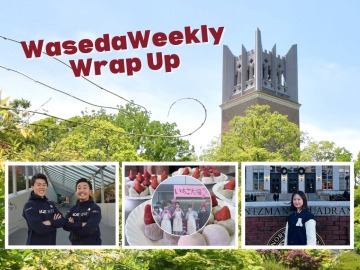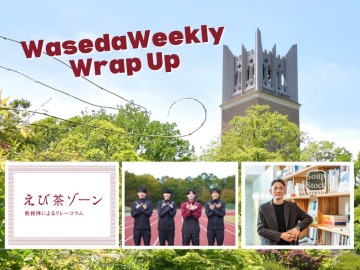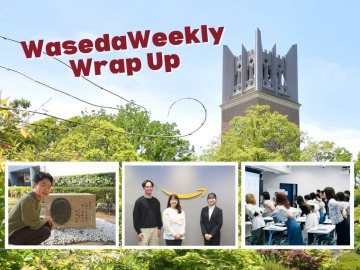Professor Miura, Please Tell Us, “How Do We Keep the Peace?” Part1
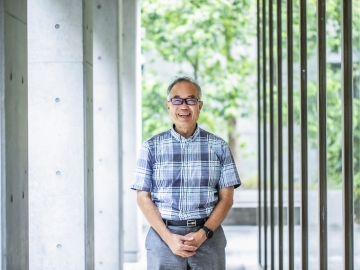
In the series “Lectures by Experts”, four professors give us hints about how to potentially solve some of the problems that challenge society. The theme for 2023 is “How Do We Keep the Peace?” Following Russia’s invasion of Ukraine, it is necessary to rethink what peace is. The series’ third guest, Professor Kiyoharu Miura (Faculty of Letters, Arts and Sciences), who specializes in Russian history and literature from the Middle Ages, shared his thoughts through his understanding of the Russian invasion through the lens of Russian history.
Waseda Weekly asked Professor Miura, “How do we keep the peace?” to which he responded, “First, shouldn’t we work towards respecting and understanding others? In trying to understand others, we will surely be able to see the path to compromise and amicability.”
Professor Miura recalled how Russia’s President Putin has emphasized a historically united Russia that included Ukraine. The source of this desire to reunite is the fact that both Russia and Ukraine have roots in Kievan Rus’, the first East Slavic State established around the 9th century. While acknowledging Ukraine’s emphasis on its own independence, Professor Miura’s message is that we should also try to understand how Russia as a country has gotten to where it is today, and we should deepen our knowledge of the thoughts and ideas held by Russia’s leadership. He thinks this will allow us to see new aspects, but he notes that, of course, the use of violence is unforgivable. Still, moving towards a deeper understanding will show us a way to peace.
Professor Miura gives reasons why President Putin decided to send forces to Ukraine by mentioning that humans are not perfect, yet sometimes we fall privy to the idea that we can do anything. This seemed to be more than likely what happened with Putin after the Annexation of Crimea went so smoothly for Russia in 2014. In the next piece, Professor Miura tries to explain some reasons for this misalignment through his observations on Russian’s traditional views of their own leaders, which had been built for long time after their acceptance of the Orthodoxy.
Japanese article:「平和をどう守る?」教えて! 三浦教授(前編)
New Single Released! “HALLEY”, a Band Started at Waseda, has Their Eyes on the Music Scene
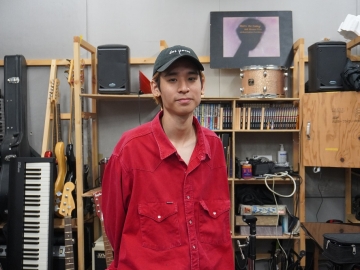 “Music is something that I can lose myself in, and I can still enjoy it even when there are difficulties.”
“Music is something that I can lose myself in, and I can still enjoy it even when there are difficulties.”
The five members of the R&B band met in the official student club named The Naleio. Starting from May 2023 they have released three digital singles in three months, “Set Free,” “Whim,” and “Breeze,” and they are currently working on their EP titled “Daze.” Waseda Weekly interviewed HALLEY’s guitarist, Haru Toyama. He has always wanted to learn about music from an engineering perspective, and since middle school, he aspired to enroll in the Department of Intermedia Art and Science. When asked about why he started the guitar, Haru shared that his father’s love of the guitar influenced him from a young age and he wanted to practice together with a classmate at the Hong Kong Japanese School.
The band formed at the first club session following the lifting of restrictions on gatherings during the Coronavirus pandemic. Luckily, all five members of HALLEY attended. Haru said he feels happy when people come to his live shows and buy his band’s goods, or when he sees an increase in new listeners. He is always trying his best to give a performance that makes his audience happy. R&B is originally from New Orleans in the US, but the band’s goal is to create an Asian R&B style from Japan. Haru said R&B is simply, “A genre you can dance to.”
Japanese article:祝・シングルリリース! 早稲田発バンド「HALLEY」が目指す音楽シーン
I Understood the Core Values of Job Hunting After Self-analysis: A Life Only You Can Live
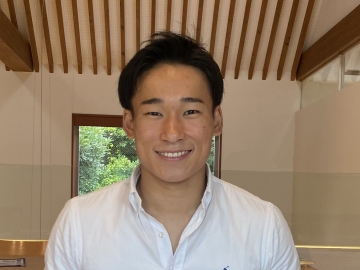
In this article, Waseda Weekly talked with Kenji Tsujimoto,a fifth-year student at the School of Political Science and Economics. He says living at “Wakeijuku”, a male-only dormitory, was an indispensable experience. When Kenji told an upper-classman that he was panicking because he could not figure out what he should be working on, he received advice from an upper-classman, who was also a fellow member living in the dorm. The advice was to look inward and self-analyze, which was a turning point in his job-hunting experience. Kenji remembered his time on the rugby team in high school and his experience as a leader of the dormitory and realized his desire to create an environment where people could help each other.
Through Kenji’s job-hunting experience, he realized that as he talked with more people and received different advice, his sense of panic and worry started to disappear. This led him to the conclusion that when job hunting, there is nothing more important than reassessing yourself and your values. His message to the students who will come after him is to try to experience everything you can while you have the time. For students beginning their job hunt, he recommends approaching the process with a positive attitude. Finally, he encourages anyone having a difficult time in their job hunting to reach out to the people around you for support. We must resist the urge to compare ourselves to others because, in the end, we are the only ones with the power to decide our own future.
Japanese article:自己分析でつかんだ就活の軸 自分にしか歩むことのできない人生を


